Restoration of entrance doors
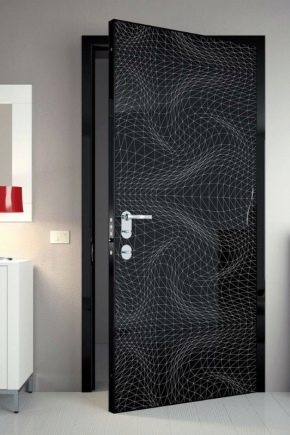
Door restoration is an inevitability that sooner or later will have to be faced during operation. Even metal is not eternal, no matter how high-quality and durable it may be, not to mention the finishing materials that suffer in the first place. The front door wears out much faster than the interior door.
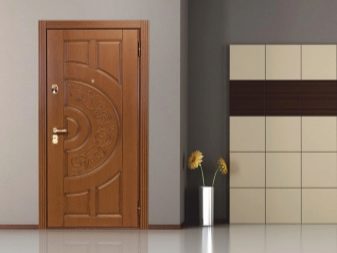
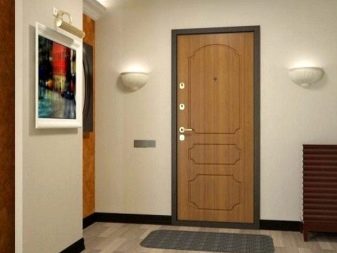
Peculiarities
Due to the massiveness of the door and its daily use, as well as the harsh natural conditions, its appearance, decoration and fittings suffer greatly. The quality of its operation is also subject to changes.
In connection with the deterioration of a street, internal access or entrance apartment door, its basic tasks are lost:
- thermal insulation of the room;
- decorative purpose;
- protection from intruders.
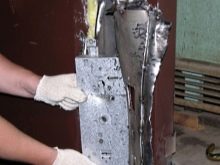
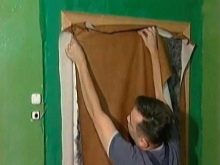
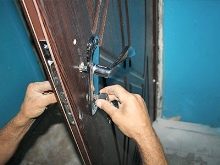
If a door is skewed, rusted, or has lost its appearance, all these factors are a reason for urgent action. It is not at all necessary to replace the door with a new one. It can be restored with your own hands. Both the outer and inner sides of the door may need to be repaired.
First of all, when restoring the front door, careful preparation is required. You need to carefully examine the door and understand how serious repairs are needed, and what changes your door has undergone.
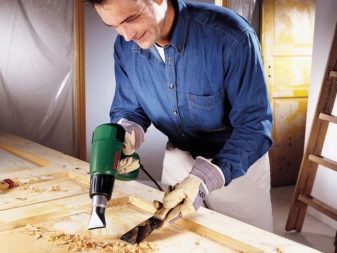
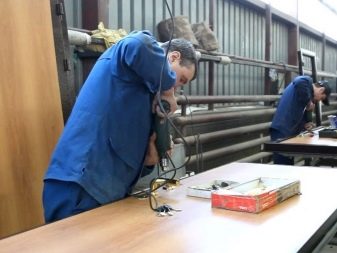
Types of malfunctions:
- breakage of hinges, lock or handle;
- damage to the finish;
- damage to the door leaf itself.
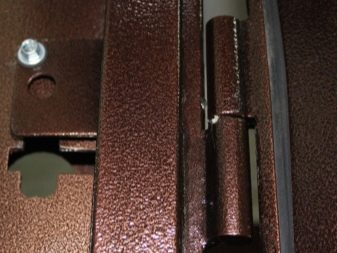
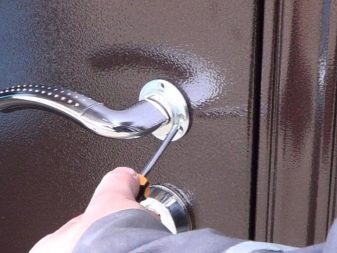
DIY repair involves the following steps:
- replacement of fittings and locks;
- restoration of decor;
- repair of the canvas as a whole.
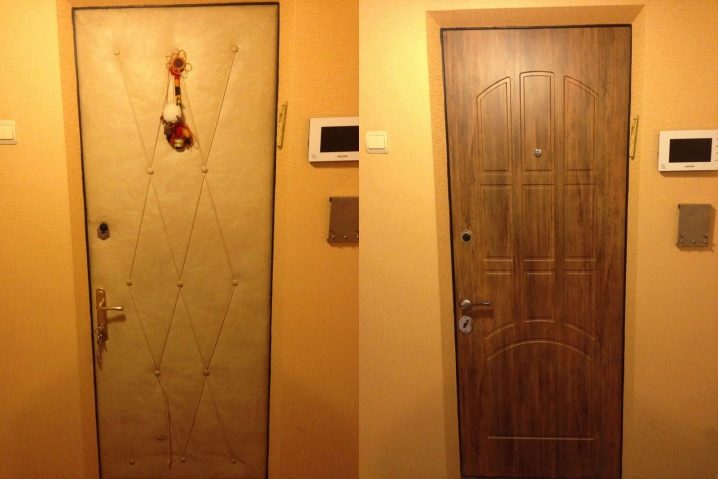
How to renovate the outside?
Elimination of corrosion from an iron door can be carried out as follows. First, the lock and door handle are dismantled. Removable cladding - laminate, leather, wood panels, MDF and more. If the door is painted, the paint layer must also be removed.
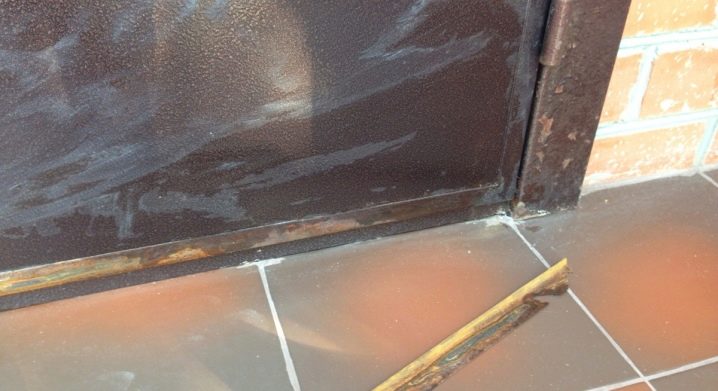
Check surface for corrosion and remove:
- To work, you will need a solvent, primer (primer), paint and a roller.
- Corrosion can be removed with a wire brush or coarse sandpaper. If there is a grinder, then it is necessary to use emery wheels with an abrasiveness of 60-100 grit. It is necessary to process not only the place affected by rust, but also the adjacent area.
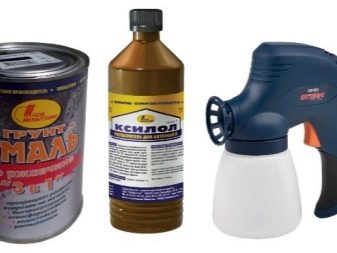
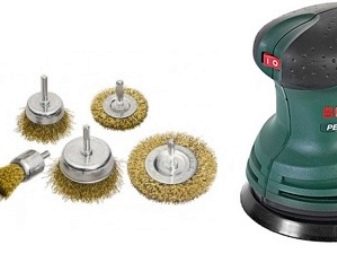
- Then the treated surface is thoroughly traversed with sandpaper of finer abrasiveness, irregularities and scratches are removed.
- Then the surface is degreased and dried.
- If there are large damages and deep scratches on the door leaf, then they must be filled with putty. Automotive is best suited for these purposes. When filling damage with putty, it is important not to miss large pores and cracks. After that, the product is thoroughly dried and sanded again. If the putty layer is not sufficiently dried, then after painting, at the slightest temperature changes, the paint and varnish will crack.
- Then the entire surface is primed in one layer. Next, the first layer of paint is applied, dried and, if there are flaws and smudges, then they are eliminated with sandpaper. And finally, the entire surface is painted over with a finishing coat of paint. At the end of the work, all the fittings are installed back.
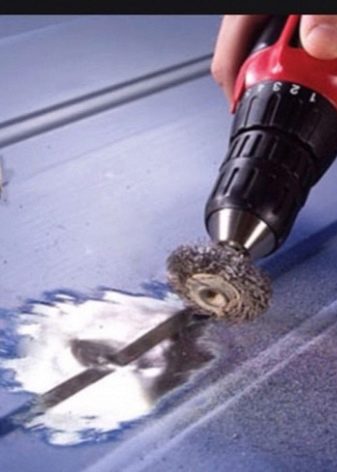
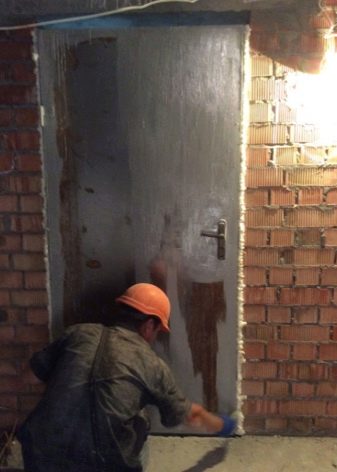
For such painting, paints based on nitro enamel are most often used. But much stronger and more durable powder paints... They are able to extend the service life of the outer door covering. Powder-based paints have high temperature resistance, which is especially suitable for painting street doors.
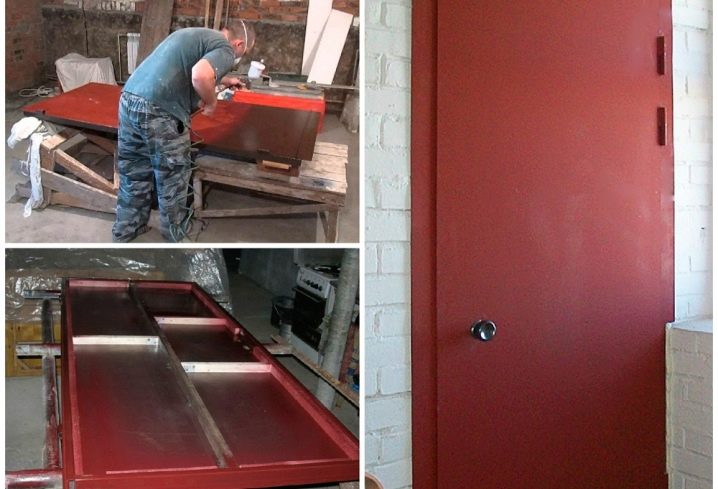
If individual panels are damaged, then they must be dismantled, and the surface carefully cleaned to install new ones. You just need to select the panels that are suitable in size and screw them into the grooves with self-tapping screws.
Sometimes a complete replacement of the facing layer is needed. At the same time, the remnants of the previous decor are initially removed from the door and the surface is thoroughly covered with sandpaper. In some cases, door repair is not required at all, it is enough just to update the coating.
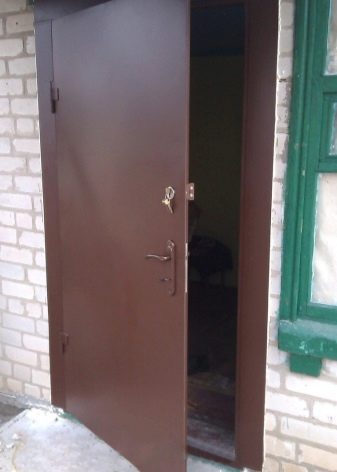
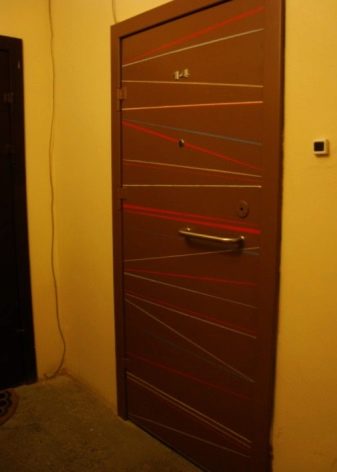
Successful examples and options
There are several restoration options for a complete veneer replacement.
Thermal Stickers
You can apply thermal stickers to the door surface. In European countries, this non-standard decoration has become widespread. Thermal stickers are a completely new direction in design and decoration, they are perfect for updating the door leaf.
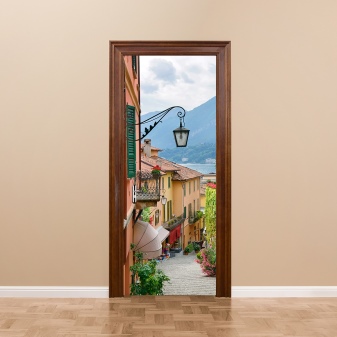
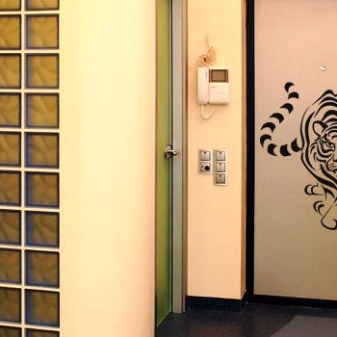
Artificial leather upholstery
This option is not very expensive and very effective in terms of external parameters. Due to the wide range of colors available on the market, this method is in great demand. Artificial leather can withstand temperature extremes and is resistant to sunlight and moisture. A the use of soft fillers significantly increases sound insulation and retains heat... The only drawback of this finish is its low strength and fragility. As a filler, mainly foam rubber, felt or synthetic winterizer are used.
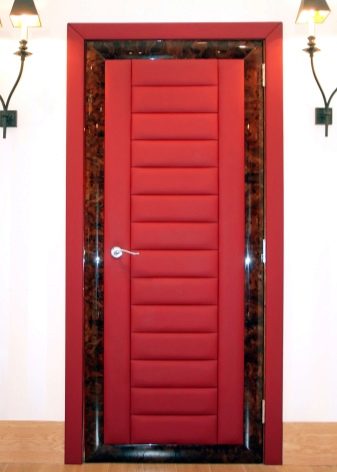
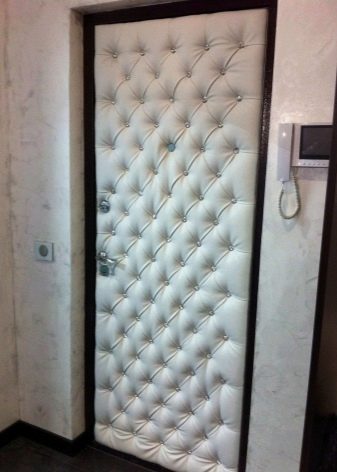
In the first step, we prepare the door and cut out the strips to create a framing cord that will go around the perimeter of the canvas. We put round insulation in the strips, fold them in half and stuff them around the perimeter, retreating from the edge by 10 mm. Insulation must be placed between the rollers. If the door is metal, then you need to put it on glue. Next, a leatherette cloth of a suitable size is placed between the rollers, with each edge folded inward. The material is stretched and secured with staples.

You can decorate such a door with a decorative cord and carnations with voluminous hats.
After the upholstery, all removed or new fittings, a lock, a peephole, hinges are installed on the door.
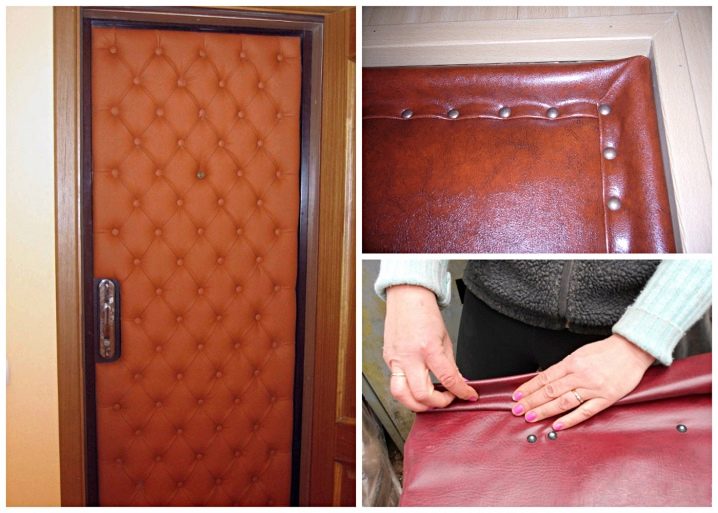
Cladding with wooden slats
Undoubtedly, this method of restoration will give your door an aesthetic appearance and increase noise and heat insulation. Wooden slats or lining must be sanded, impregnated with stain or varnished. The varnish can be chosen in any color, it all depends on your imagination. It can be mahogany or wenge. In addition, there are matte and glossy varnishes.
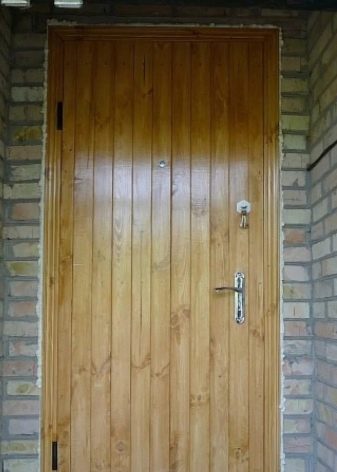
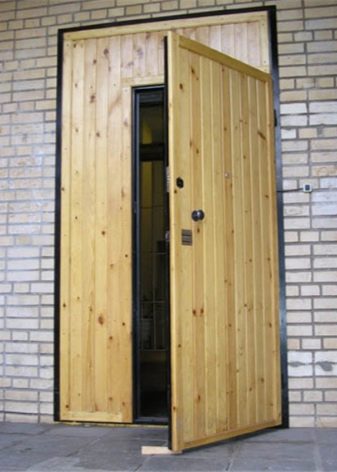
The processed slats should be stuffed onto the door with small staples, or glued to wood glue. You can lay out the slats vertically, horizontally, or in the form of your chosen ornament. They can also be laid out in a geometric pattern.
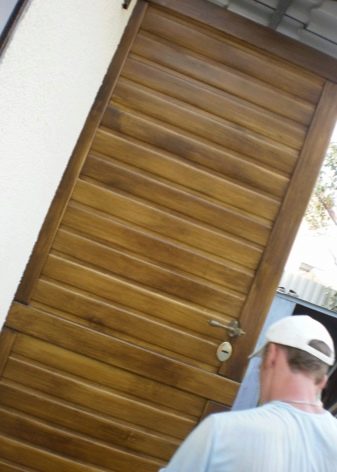
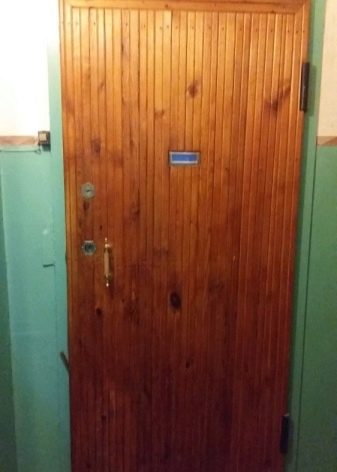
Facing with MDF panels
This is a very modern and practical method of door cladding. This material has a wide range of colors, as well as a wide selection of textures, due to which doors finished with MDF are distinguished by special beauty and elegance. This material has a fairly high strength and durability. He is not afraid of the sun's rays and temperature drops.
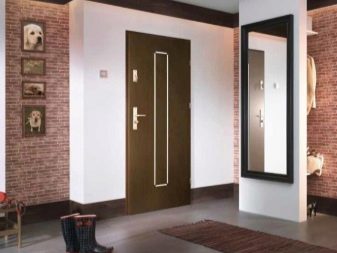
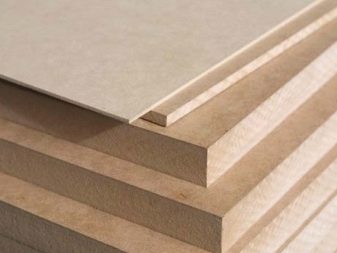
When finishing MDF, first of all, you should take care of the cuts of the panels. Best suited for this is the PVC profile, which is matched to the color.
- First you need to dismantle the fittings and the lock, as well as fill in all possible gaps and holes around the doors. To do this, you need to use polyurethane foam. After it dries, cut off the excess with a knife.
- If the door is metal, then it is necessary to treat it with anti-corrosion agents. Then the door leaf must be primed if MDF will be mounted on liquid nails.In the panel itself, it is necessary to deliberately make holes for the lock.
- The door must be removed from its hinges in advance to avoid distortions and laid horizontally. The panel itself must be thoroughly wiped from the wrong side to avoid peeling.
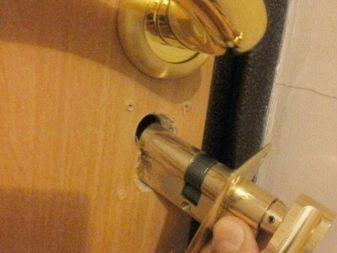
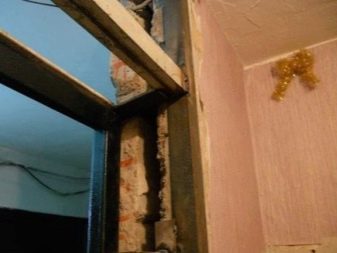
- The first step is to make markings for the future location of the door peephole, handle, lock. Holes are drilled according to the marking. Then the height of the door is measured and the profile is cut off, which will be attached first. If the door to be restored is metal, then the profile is glued, if it is wooden, then the profile is attached to self-tapping screws.
- Next, place the first panel in the profile groove and fix it. Then we insert all the other panels into one another, screwing each one in parallel with self-tapping screws. Having measured the remaining width, you need to cut off the last panel, put a profile on it and attach it to the door.
- At the final stage, we cut off 2 pieces of the profile along the width of the door and put them on the ends, having previously cut the ends at an angle of 45 degrees. This will make the frame look neat and solid.
The whole process is clearly shown in the following video.
Veneer cladding
The veneer is convenient because it has an adhesive back, which makes the repair process easier. Veneer strips must be cut to the size of the canvas, attached to it and glued with a hot iron. The adhesive has thermal properties and the polymerization process takes place when heated. The edges of the veneer are bent and glued to the end, for which it is cut in advance with a margin. This method is suitable for finishing doors both from the outside and from the inside.
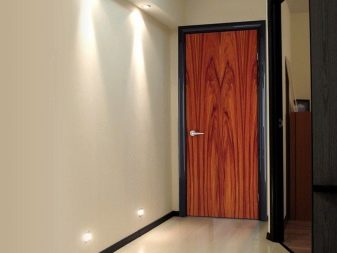
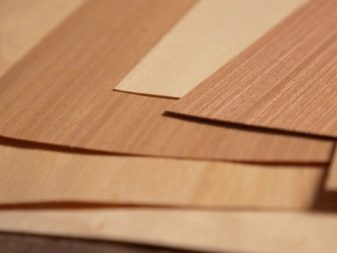
Laminate cladding
Another quick and convenient way to restore a door leaf. The polymer thermal film covering the tiles on the front side has a rich assortment of colors and textures, its pattern allows you to imitate many artificial and natural materials, which explains the immense popularity of laminate when choosing a finishing material for entrance doors.
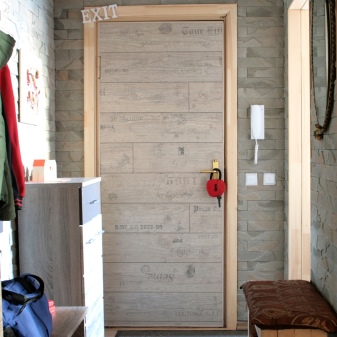
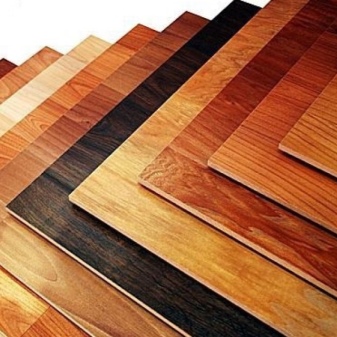
Along the perimeter of the iron sheet, strips are glued in the color of the selected laminate. On a wooden base, the slats are planted on liquid nails. The tiles are selected according to the size of the door leaf and assembled into a one-piece shield, then it is transferred to the main leaf and also attached to liquid nails. If the tiles are mounted on a door without edging, then the ends are painted over with paint of a similar color to hide the cuts. It's a good idea to match the cashing in color.
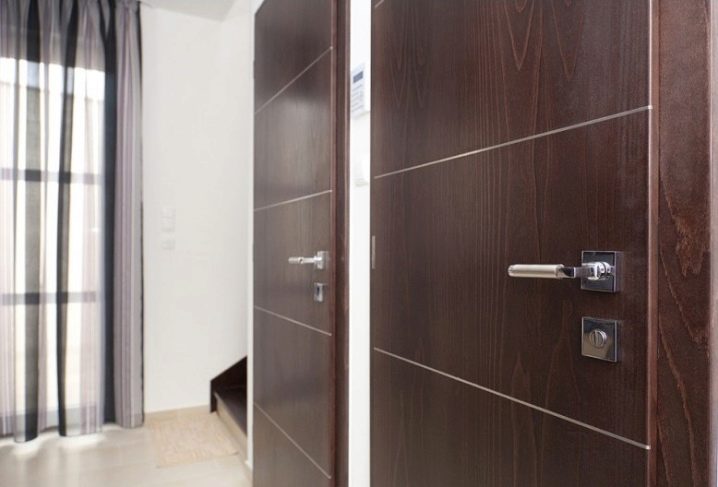
In addition to its pleasant appearance, the updated door acquires additional noise and heat insulation.
How to update from the inside?
When restoring entrance doors, first of all, it is necessary to take into account both the physical properties of the materials and the advantages and disadvantages.
All of the above finishing methods are suitable for both external and internal work.
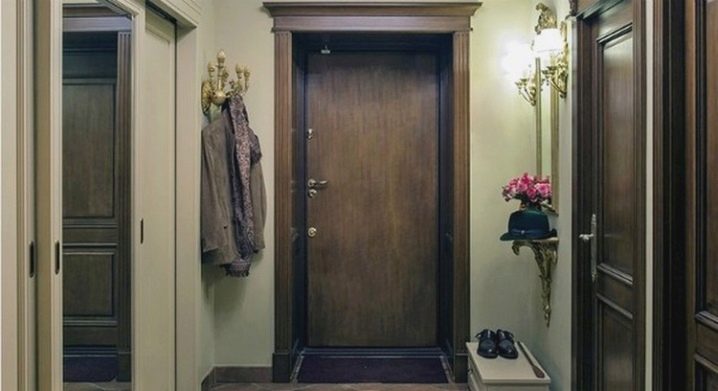
But due to the low wear resistance, restoration methods using laminate and leatherette are more suitable for repairing a door inside an apartment.
- Artificial leather is very susceptible to physical influences and damage on it cannot be masked; in an apartment this coating will last much longer than outside.
- Laminate, in turn, is afraid of moisture. Dampness in the entrance will make your finish short-lived, and the door will quickly lose its appearance and will require restoration again.
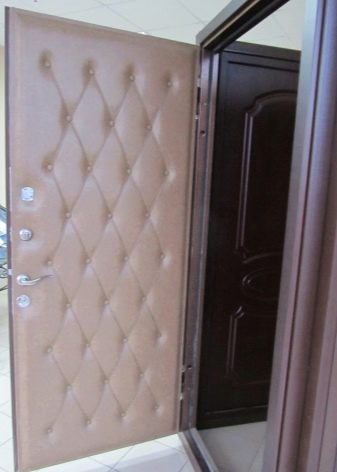
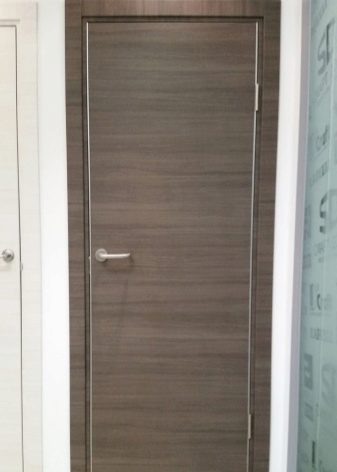
Initially, you need to worry about the completion of the work. This applies to the removal of excess polyurethane foam and its masking. To do this, it is best to use slopes that are similar in shade and texture to the restored door surface. Without correctly selected slopes, the finish will not be complete.
For slopes, MDF, plastic panels, laminate, drywall and plaster are used.
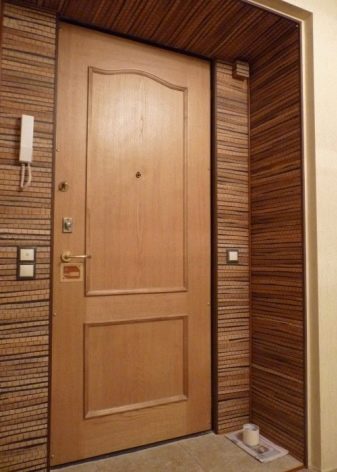
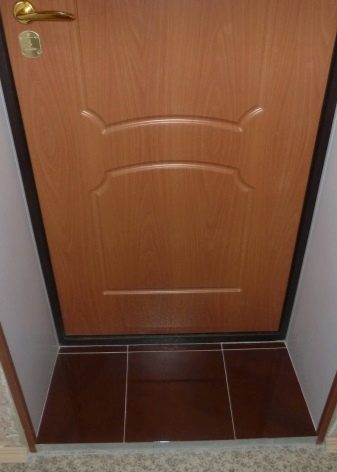
Another important detail of the interior door trim is the platbands. Often the platbands come with the rest of the materials for decorating the doorway, but in case of restoration, you will have to pick them up yourself... A wide assortment will allow you to buy them in color and material that suits your door. They are made from wood, plastic, metal, MDF and more. Depending on the material of the platbands, the methods of their fastening are also selected: these are glue, polyurethane foam, nails.
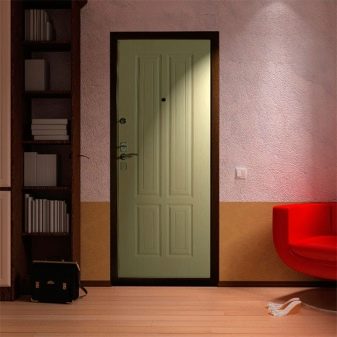
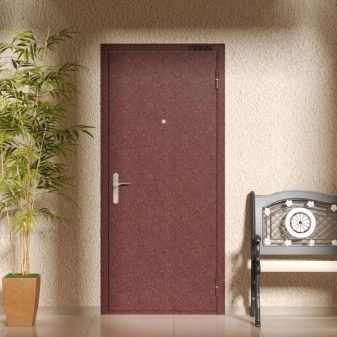
Here are some simple and fun methods for restoring old doors or renovating new ones.
A rich assortment of finishing materials and your imagination will help breathe new life into a dilapidated door and give it the opportunity to serve you for many years.
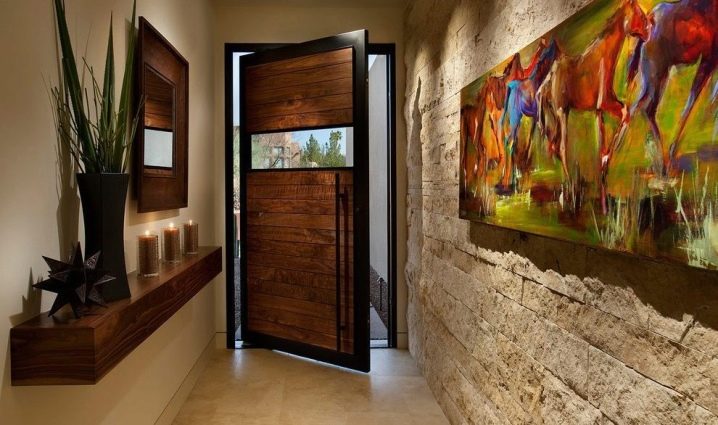













The comment was sent successfully.